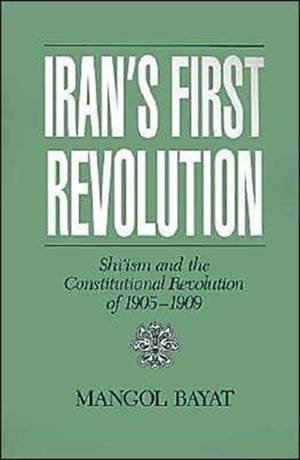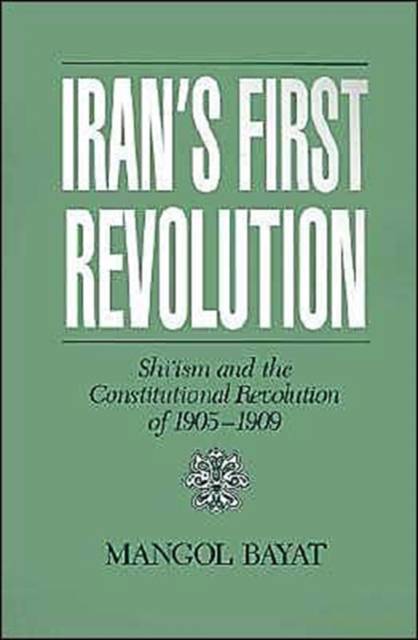
- Afhalen na 1 uur in een winkel met voorraad
- Gratis thuislevering in België vanaf € 30
- Ruim aanbod met 7 miljoen producten
- Afhalen na 1 uur in een winkel met voorraad
- Gratis thuislevering in België vanaf € 30
- Ruim aanbod met 7 miljoen producten
Zoeken
€ 381,95
+ 763 punten
Omschrijving
In order to understand Iran's religious revolution of 1978-1979, it is important to look closely at an earlier revolution in the country, the constitutional revolution of 1905-1909. This revolution, which resulted in the establishment of Iran's first parliamentary democracy, was a seminal event in the country's history. The most thorough and comprehensive history of the revolution to date, Bayat's book examines the uneasy alliance of clerical, bureaucratic, landowning, and mercantile elements that won the support of the masses for a more democratic government, especially the clerical dissidents that gave the revolution an aura of religious legitimacy. Bayat argues that the recent religious revival in Iran is much less surprising when one sees how constitutionalists at the beginning of the century had to couch their calls for reform in the language of the Koran, claiming that political reforms constituted a return to Islam.
Specificaties
Betrokkenen
- Auteur(s):
- Uitgeverij:
Inhoud
- Aantal bladzijden:
- 336
- Taal:
- Engels
- Reeks:
Eigenschappen
- Productcode (EAN):
- 9780195068221
- Verschijningsdatum:
- 14/11/1991
- Uitvoering:
- Hardcover
- Formaat:
- Genaaid
- Afmetingen:
- 161 mm x 238 mm
- Gewicht:
- 616 g

Alleen bij Standaard Boekhandel
+ 763 punten op je klantenkaart van Standaard Boekhandel
Beoordelingen
We publiceren alleen reviews die voldoen aan de voorwaarden voor reviews. Bekijk onze voorwaarden voor reviews.











